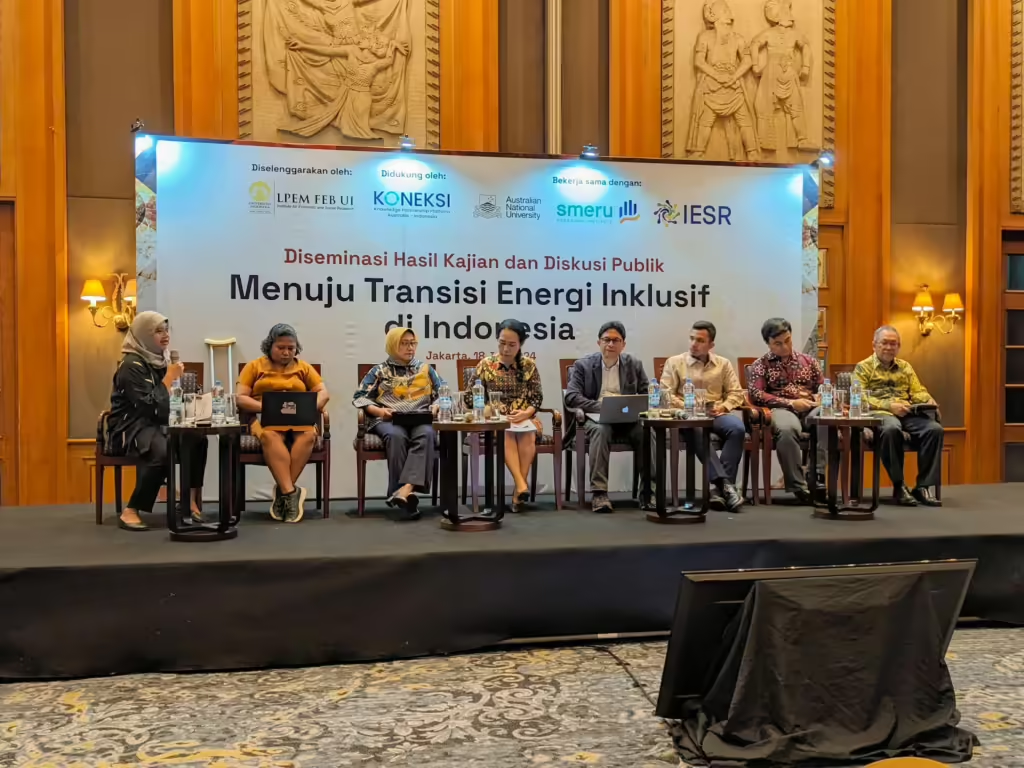Authors : Jahen F. Rezki, Roes Regi Lutfi, Yoshua Caesar Justinus.
Executive Summary
Government policies demand an integrated approach that incorporates policy modeling, especially given the uncertainties in real-world conditions. The lack of a comprehensive approach may result in government failures or imbalances in economic sectors. In Indonesia, the state of policy is structured into government planning documents. The government also aspires to achieve a higher income country status and, at the same time, smooth energy transition with Indonesia’s climate targets being comparable with other G20 countries. However, the methods to reach these goals often follow a top-down approach and have limited interlinks across different sectors or ministries.
Nonetheless, several studies indicate discrepancies between feasible actions and current targets, highlighting the need for clarity in modeling and communication. Policy modeling in Indonesia is both clustered and scattered. While there’s consistency within the ”families” of models, there’s a gap between different ”families,” creating challenges in drawing comparative insights. Therefore, there is an increased need for transparency and communication. Policy models need to be more transparent about their underlying assumptions and methodologies. This clarity would enable third-party replication and scrutiny, enhancing credibility and fostering accountability.
Many alternatives of policy modeling can be used, for instance, the platform developed by Sentient Hubs (Sentient Hubs can be accessed through its website on https://www.sentient-hubs.com). Serving as an integrated policy and impact modeling platform, Sentient Hubs could bridge the current modeling gaps. Its capability to integrate various models covering economic, social and environmental aspects, and providing customizable dashboards presenting a wide range of ‘what if’ scenarios, could enable stakeholders to gain deeper insights and holistic perspectives.
Achieving a comprehensive policy modeling framework in Indonesia requires collaborative efforts from various stakeholders. The use of unique new alternative platforms could play a pivotal role in bridging existing gaps, ensuring that policies are both transparent and actionable.




